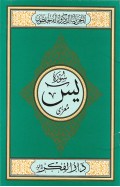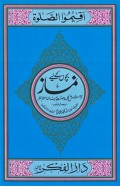- Home
- Books
- Categories
- Non Fiction
- Religion & Spirituality
- Beyond Faith and Infidelity: The Sufi Poetry and Teachings of Mahmud Shabistari
Beyond Faith and Infidelity: The Sufi Poetry and Teachings of Mahmud Shabistari
By: Leonard Lewisohn
-
Rs 980.00
Due to constant currency fluctuation, prices are subject to change with or without notice.
This study of the life and poetry of the Persian Sufi Mahmūd Shabistarī (d. 1339-40), whose 1000-couplet poem The Garden of Mystery has been described as the handiest introduction to the thought of post-Ibn ‘Arabi Sufism, deals with Shabistarī’s literary legacy both in his own era the last half century of the Mongol period coinciding with the greatest epoch in the history of Persian literature. The scholastic context of Shabistarī’s thoughts, his relationship to peripatetic philosophy, and his place in classical Persian Literature are discussed in depth and places his poetry for the first time in the context of local socio-political conditions. Composed in a highly symbolic language, and drawing upon the lexicon of several centuries of Persian symbolic poetry, the Garden of Mystery sets forth the dicta of the Sufis on a variety of themes such as ‘Thought’ (fikr), ‘the Soul’ (nafs), Knowledge (ma‘rifat), the Multiplicity and Unity of the Realms of Being, the Hierarchical Levels of Being, the Spiritual Voyage (sayr) and Methodical Progression on the Sufi Path (sulūk), nearness (qurb) and distance from God (bu‘d), and the evolution of the soul.
All the poetic work of Shabistarī shows a peerless flair for metaphysical penetration combined with an aphoristic skill in synthesizing intricate dilemmas of Islamic theological and theosophical thought, unrivalled by any other mediaeval Persian Sufi poet in brevity of output and profundity of content.
This study of the life and poetry of the Persian Sufi Mahmūd Shabistarī (d. 1339-40), whose 1000-couplet poem The Garden of Mystery has been described as the handiest introduction to the thought of post-Ibn ‘Arabi Sufism, deals with Shabistarī’s literary legacy both in his own era the last half century of the Mongol period coinciding with the greatest epoch in the history of Persian literature. The scholastic context of Shabistarī’s thoughts, his relationship to peripatetic philosophy, and his place in classical Persian Literature are discussed in depth and places his poetry for the first time in the context of local socio-political conditions. Composed in a highly symbolic language, and drawing upon the lexicon of several centuries of Persian symbolic poetry, the Garden of Mystery sets forth the dicta of the Sufis on a variety of themes such as ‘Thought’ (fikr), ‘the Soul’ (nafs), Knowledge (ma‘rifat), the Multiplicity and Unity of the Realms of Being, the Hierarchical Levels of Being, the Spiritual Voyage (sayr) and Methodical Progression on the Sufi Path (sulūk), nearness (qurb) and distance from God (bu‘d), and the evolution of the soul.
All the poetic work of Shabistarī shows a peerless flair for metaphysical penetration combined with an aphoristic skill in synthesizing intricate dilemmas of Islamic theological and theosophical thought, unrivalled by any other mediaeval Persian Sufi poet in brevity of output and profundity of content.
Beyond Faith and Infidelity: The Sufi Poetry and Teachings of Mahmud Shabistari
By: Leonard Lewisohn
Rs 980.00 Ex Tax :Rs 980.00
Zubin Mehta: A Musical Journey (An Authorized Biography)
By: VOID - Bakhtiar K. Dadabhoy
Rs 840.00 Rs 1,050.00 Ex Tax :Rs 840.00
Me and Rumi the Autobiography of Shams i Tabrizi
By: Jalal Al-Din Rumi
Rs 1,250.00 Ex Tax :Rs 1,250.00
Shah WaliAllah and His Times A Studay of Eighteenth Century Islam Politics and Society in India -
By: Saiyid Athar Abbas Rizvi
Rs 1,200.00 Ex Tax :Rs 1,200.00
The Origins of Political Order From Prehuman Times to the French RevolutioN
By: Francis Fukuyama
Rs 3,895.00 Ex Tax :Rs 3,895.00
Manning Up: How the Rise of Women Has Turned Men into Boys
By: Kay Hymowitz
Rs 995.00 Ex Tax :Rs 995.00
The Obama Syndrome: Surrender At Home War Abroad
By: Tariq Ali
Rs 1,036.00 Rs 1,295.00 Ex Tax :Rs 1,036.00
The Quest For Meaning: Developing A Philosophy Of Pluralism
By: Tariq Ramadan
Rs 1,116.00 Rs 1,395.00 Ex Tax :Rs 1,116.00
The Pakistan US Conundrum Jihadists The Military And The People The Struggle For Control
By: Yunas Samad
Rs 1,116.00 Rs 1,395.00 Ex Tax :Rs 1,116.00
An Enemy We Created: The Myth Of The Taliban Al Qaeda Merger In Afghanistan 19702010
By: Alex Strick van Linschoten
Rs 5,250.00 Ex Tax :Rs 5,250.00
WikiLeaks: Inside Julian Assanges War on Secrecy
By: David Leigh & Luke Harding
Rs 850.00 Ex Tax :Rs 850.00
Me and Rumi the Autobiography of Shams i Tabrizi
By: Jalal Al-Din Rumi
Rs 1,250.00 Ex Tax :Rs 1,250.00
Shah WaliAllah and His Times A Studay of Eighteenth Century Islam Politics and Society in India -
By: Saiyid Athar Abbas Rizvi
Rs 1,200.00 Ex Tax :Rs 1,200.00
No recently viewed books available at the moment.
Zubin Mehta: A Musical Journey (An Authorized Biography)
By: VOID - Bakhtiar K. Dadabhoy
Rs 840.00 Rs 1,050.00 Ex Tax :Rs 840.00
Beyond Faith and Infidelity: The Sufi Poetry and Teachings of Mahmud Shabistari
By: Leonard Lewisohn
Rs 980.00 Ex Tax :Rs 980.00
Me and Rumi the Autobiography of Shams i Tabrizi
By: Jalal Al-Din Rumi
Rs 1,250.00 Ex Tax :Rs 1,250.00
Shah WaliAllah and His Times A Studay of Eighteenth Century Islam Politics and Society in India -
By: Saiyid Athar Abbas Rizvi
Rs 1,200.00 Ex Tax :Rs 1,200.00















-120x187.jpg?q6)









-120x187.jpg?q6)



-120x187.jpg?q6)



